Brexit: A tale of Vale of Glamorgan and Bridgend
- Published
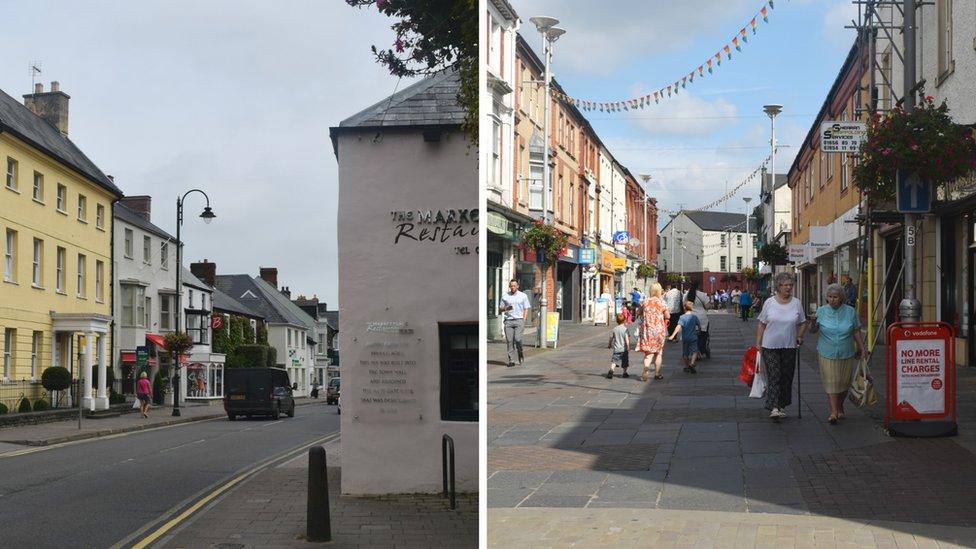
How do the people of Cowbridge and Bridgend feel about Brexit two months on?
Two counties, two very different decisions. But how are the people of Vale of Glamorgan and Bridgend feeling about the Brexit vote two months on?
One boasts a rural setting with an agricultural heritage, while the other was built around a now-struggling industrial town propped up by EU funds.
On a map they sit side by side, but on 23 June voters in the two counties were not united on whether the UK should continue membership of the European Union.
In Bridgend, the result was quite clear - 54.6% voted Leave, while 45.5% voted Remain.
But the matter was almost too close to call in Vale of Glamorgan where there were just 1,053 votes in it.
The county produced one of the closest results in Wales - and the UK - as 50.7% of voters chose to Remain, while 49.3% wanted out.
Now, two months on, are voters sticking by their decision or are some siding with those calling for a second chance to vote on the issue?

What is on the minds of voters in Bridgend?
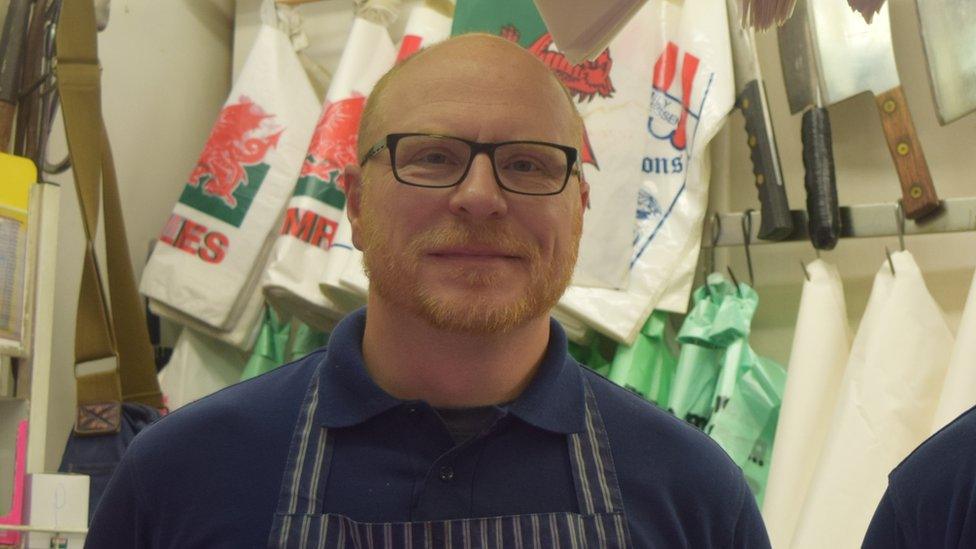
Dan Wood said the Leave campaign misled people on immigration issues
Remain voter Dan Wood, 41, of Bridgend, has concerns about the impact locally.
"The money we get from the EU, especially in Wales - the redevelopment it's gone towards - it's inevitable [Brexit] will have an impact," he said.
"We've just had £10m to build a new multi-storey car park.
"Initially for the first three or four days, I felt quite frightened and vulnerable. It was a step into the unknown, but there doesn't seem to be that many changes at the moment. It's going to be more long-term," he said.
"You've only got to look at the Euro. We went to Spain a few weeks ago and the exchange rate - that's where we are seeing it.


Nigel Mably said his science fiction collectables stall at Bridgend indoor market had felt a minimal impact of Brexit
Nigel Mably, 37, voted Leave, and despite the initial economic dip that followed the result, he is optimistic things will get better.
"We are having economic difficulties now - that was always going to happen. We are going to have the short-term pains for the long term gains," he said.
"I've not felt it in my business. A few of our products have gone up in price because they're American imports. We have one supplier based in Germany, so we're not sure what effect that will have but there's been no immediate effect."
While he acknowledging the Leave campaign had appeared to steer away from some of its campaign promises - including diverting £350m a week sent to Brussels to the NHS - he was against the idea of a second vote.
"Maybe a different day would see a different turnout but I don't think a different result," he said.

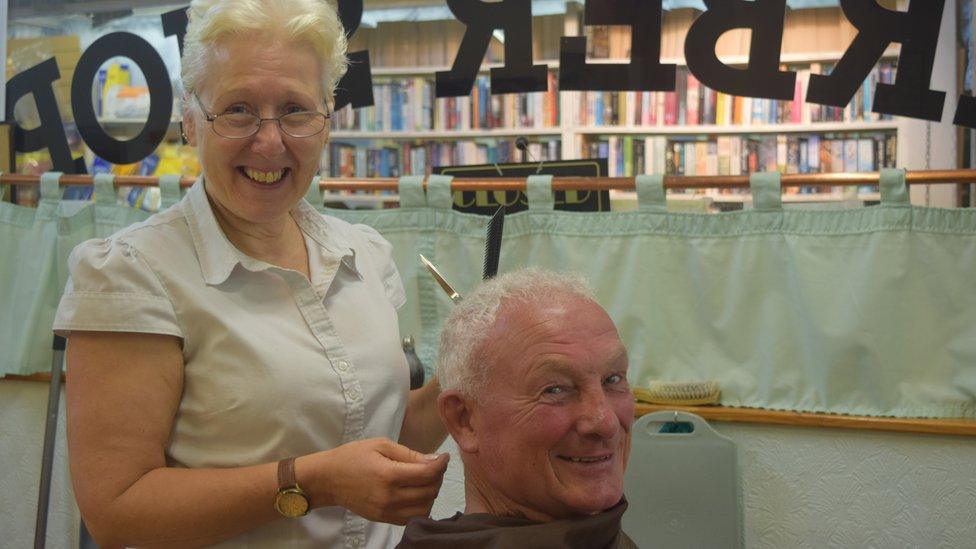
Sian Benallick and Kent Drummond are sticking by their Leave votes
Hairdresser Sian Benallick, 58, voted out because of worries about the amount of money the UK pays to the EU, and fears about over-regulation.
"There's too many rules coming from somewhere that doesn't know how the country is run.
"When I was a child my mum and dad voted for the common market, not so they [the EU] can say 'you've got to have straight cucumbers' and we've got to have different weights to pounds and ounces," she said.
"There are too many rules like that."
"People say the economy has dipped but it dipped when we were in the EU, what excuse was there then?" she added.
One of her customers, Kent Drummond, 71, agreed, adding: "I think we will be better off on our own. It's proving a lot of people wrong - they said it would be terrible and all that but we are still going."

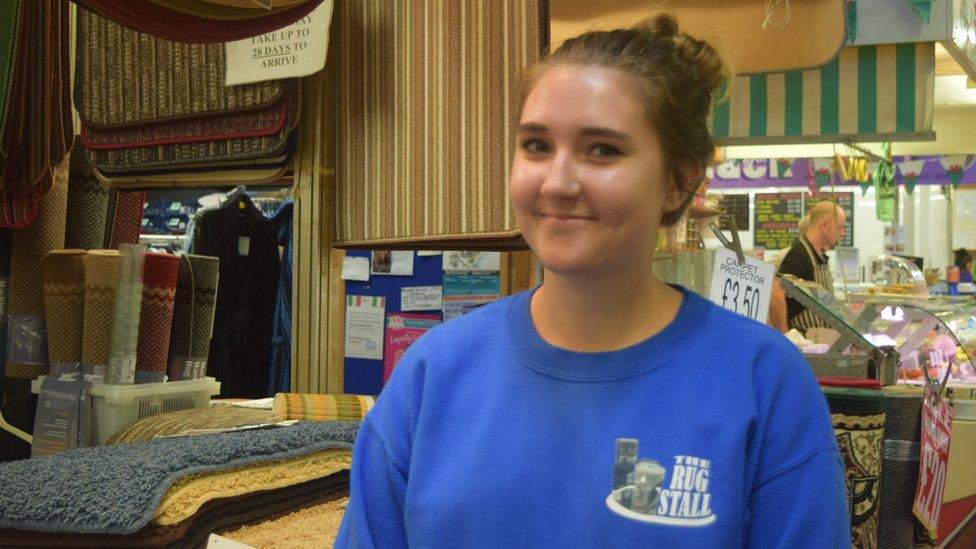
Elizabeth Rosenberg is in favour of a redirection of money paid to the EU to the NHS but said she was sceptical it would happen
Student Elizabeth Rosenberg, 20, said the referendum was a hot topic among her housemates at Royal Holloway University where she is studying English Literature.
Like many others, immigration was one of the big issues behind her vote - but for different reasons to most.
She thinks the UK government could do more to help refugees and would be against any form of restricting free movement in any Brexit deal.
"I was really annoyed. A lot of people didn't read into it, they just voted for change without knowing what they were voting for," she said.
"My grandmother voted out and she's not going to be alive when it happens. I'm the one who will have to deal with it.
"It will be a couple of years before we really see the impact."
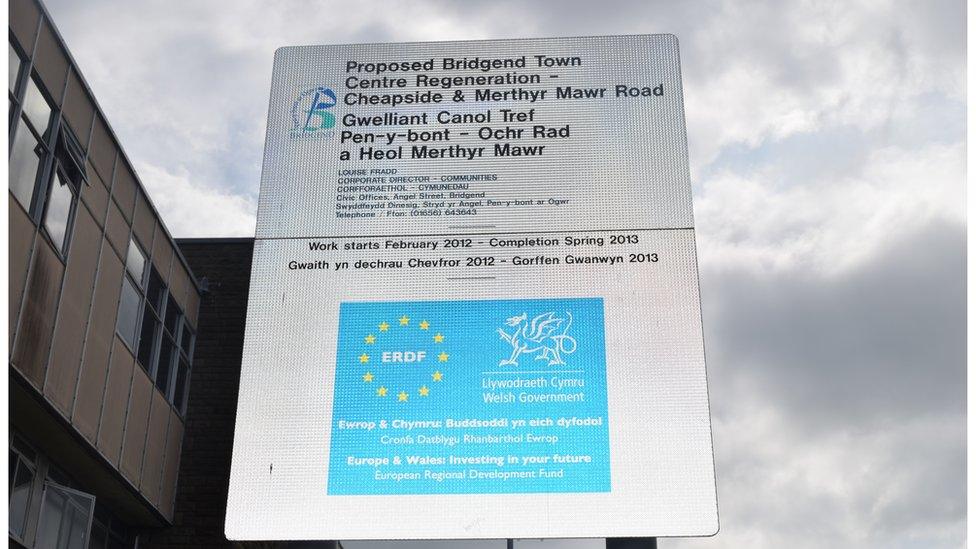
Bridgend council received EU funding to redevelop part of the town in 2012
One woman I spoke to voted out because there are "too many foreigners in the country".
The 67-year-old, who employs a Polish woman who moved here 10 years ago, said: "They should do something in their own country to stop them coming and they should help them where they are.
"We are going to let some in because they are genuine - ones that are able and willing to work. There are some - children that haven't got anything - I don't mind coming in."
Her employee, who would have voted to Remain if she was eligible, agreed with her.
She said: "Immigrants coming here to take benefits - that's a problem.
"I came here for a good life, I never took benefits, I had three or four jobs to make ends meet. But some people just come for the benefits and that should change."

How do people in neighbouring Cowbridge feel?

Sally Stephenson with her employee Maddie-Jo Rowlands, 17, who was too young to vote, but feels like she faces an "uncertain future"
Sally Stephenson feels strongly that the Brexit vote will leave her worse off.
"The first three weeks I was on the ceiling, upset, every 20 minutes I would just blow up," she said.
"Then I was really sad because I just think it's such a shame that we have turned our back on it because the Leave campaign was misleading as it was proven in the next 24 hours.
"So, my fear now is that what people have voted for is not what we are going to get."
Ms Stephenson's stationery business felt the impact straight away, with suppliers already quoting 5% price increases as a direct result of Brexit, and customers "being more cautious" about how much they spend.
While she accepts the vote is final, she is not confident any departure agreement will satisfy Remain voters like her.
"I cannot see any situation where we can get a better deal than we already have. It was too big a question to put to the public, how could we know all the possible ramifications of coming out?" she said.
"Now we are in a right mess and now there is no way out."

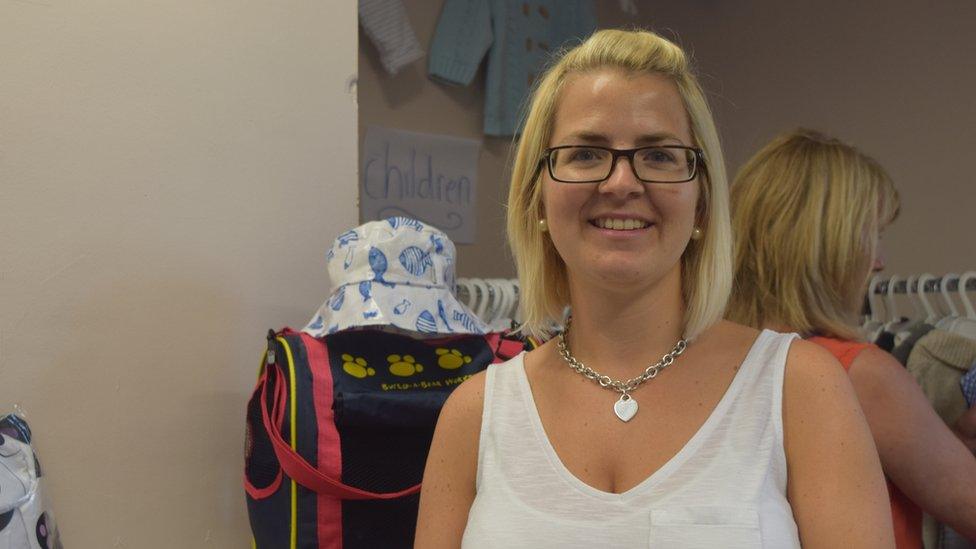
Lydia George, 35, said the vote sent a message to Europe that Britain was still a strong nation
Like many others, immigration was an influencing factor in Lydia George's Leave vote.
She made her decision after a watching a television programme about how an influx of different cultures has changed London's east end.
"It [the programme] just showed how the movement of the community had been affected... they lost the soul of the east end and that got me thinking about where I live.
"I live in the street I was born in and I know over the years how the community has changed and actually watched it," she said.
"I think we will be fine. We are a strong country and I don't think we necessarily need other countries.
"If you think how many countries in the past we used to own - I still think people look on us as an authoritative country and by us leaving, I think that sends a message that we are a powerful Britain."


Leave voter Sam Edwards said a one-size-fits-all European model does not cater for different countries
Sam Edwards, 46, knew the immediate aftermath of her Leave vote would likely see her business take a hit from a fall in the pound against the dollar, but it was a risk she was willing to take.
She believes the UK's relationship with the EU was hindering its economic growth and thinks the country will be more financially sound after Brexit.
"I felt it [the EU] was a big monster. It was trying to sustain countries that are very different and it wasn't working," she said.
"German people want to live a different way to the way people on a Greek island do and that's the issue. In Europe we don't all live the same.
"I know it's going to be rough in the short-term, medium-term a bit better and long-term much better."

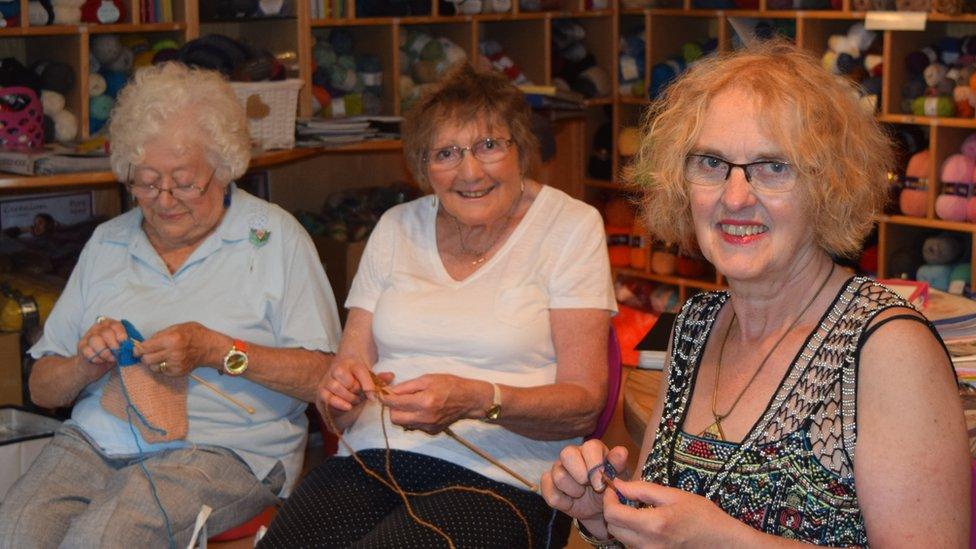
Members of the town's knitting club had mixed views on the subject.
Some did not vote because of circumstance, others out of choice, while one non-voter admitted her instinct was to vote Leave, but she would have been persuaded to vote Remain "for the sake of my grandchildren".
Others confessed they were still undecided about which was the better option.
Maintaining EU funding for universities was Joyce James' motivation for voting Remain.
"I voted because of the funding Wales has and for universities, for the input financially for research," she said.
"I am concerned about what will happen because Wales benefits more than anybody else in the UK with being in the EU."

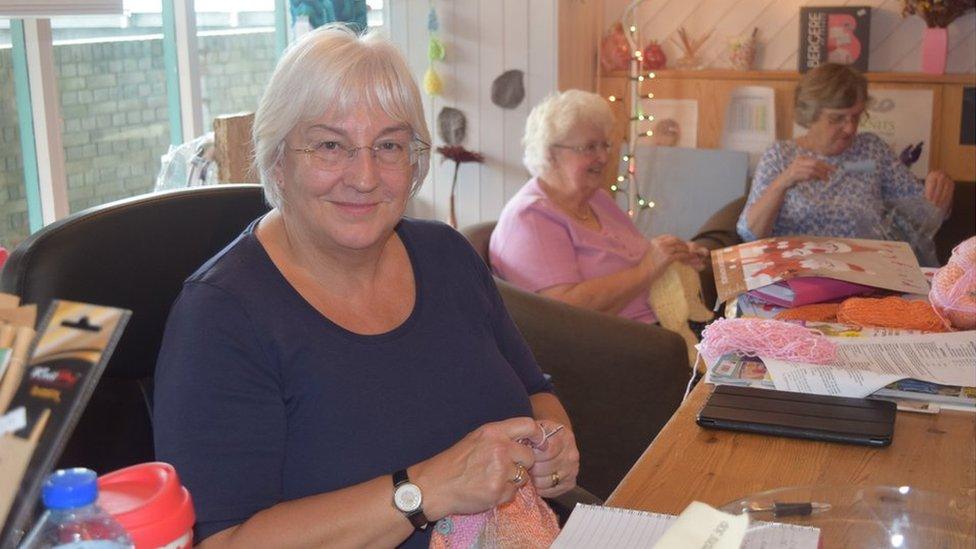
Jean Tait wants to see free movement of people within Europe maintained
Jean Tait, 60, who runs the club, "was old enough to vote in the first referendum" in 1975, when the UK voted for continued membership of the European Economic Community.
The agreement allowed her to work in France as an English language assistant without restrictions and she would like to see any Brexit package maintain free movement so this could continue.
She is already feeling the pinch from an increase in yarn and wool prices in her shop and faces uncertainty over whether she will need to pay VAT costs from suppliers in France, Italy and Germany in future, where current EU rules mean she is exempt.
"I just don't know what will happen in the future," she said.
"I've got two sons, one is a student in Glasgow and already one of his friends, a PHD student, has been told he won't be able to continue [because of funding cuts]."

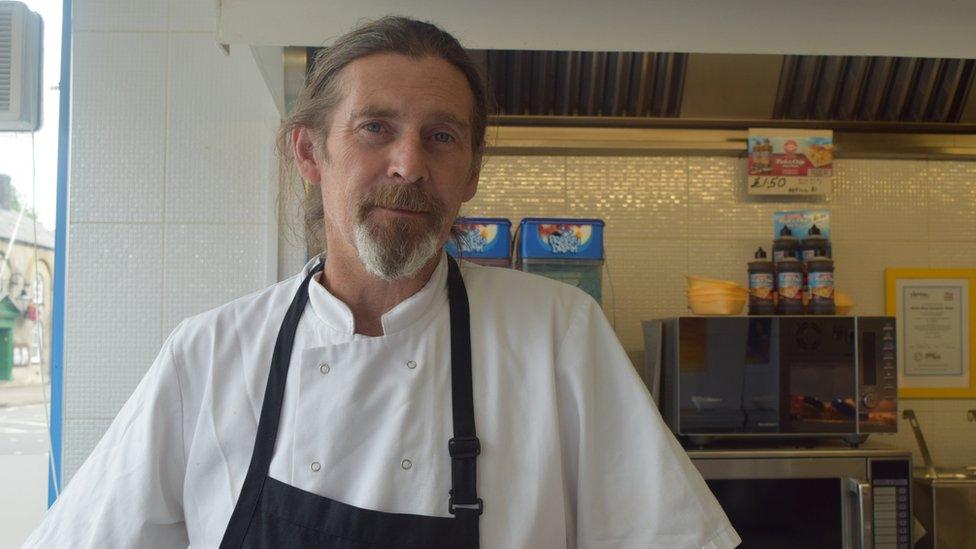
Jamie Walton, 49, voted Leave to "bring back power" to the UK as he felt "there's too much interference" from Europe on trade agreements and laws.
He acknowledged the dip in the economy, but believes a weaker pound against the Euro is a positive thing, claiming firms abroad would get British goods cheaper, which could boost demand.
"It will be five years, eight years before it will calm down but it will be worth it when we get there," he said.
- Published24 June 2016

- Published28 March 2017
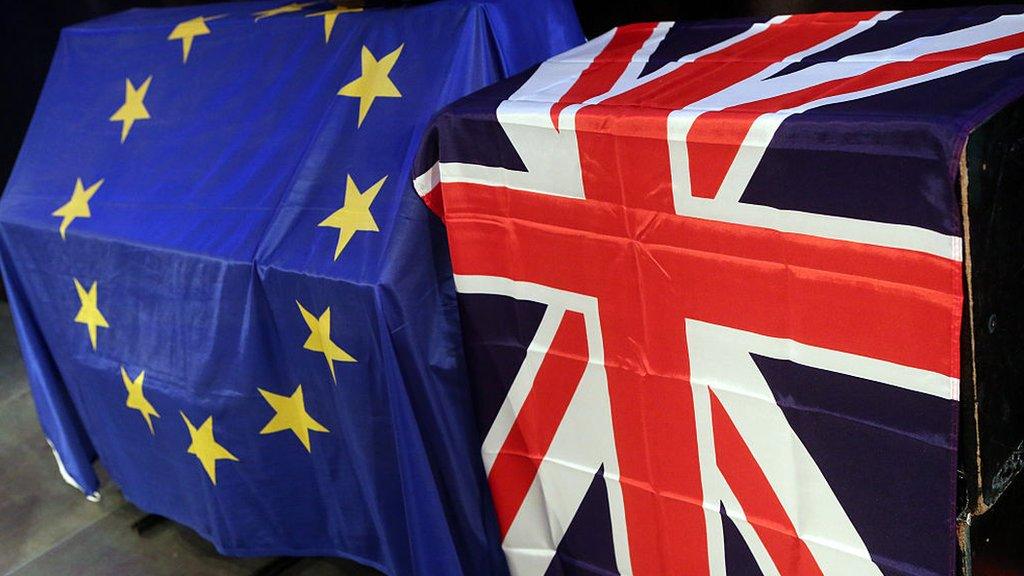
- Published29 June 2016
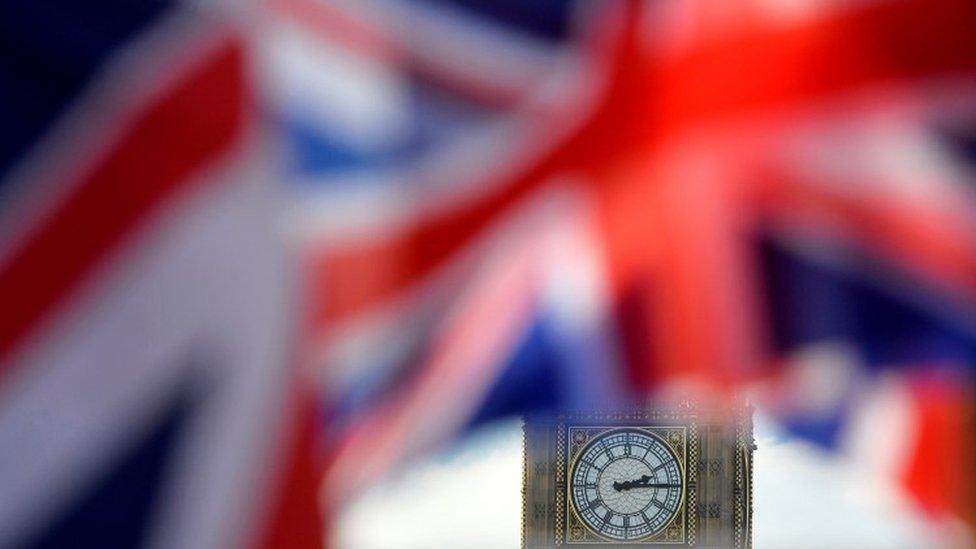
- Published30 December 2020

- Published5 July 2016
